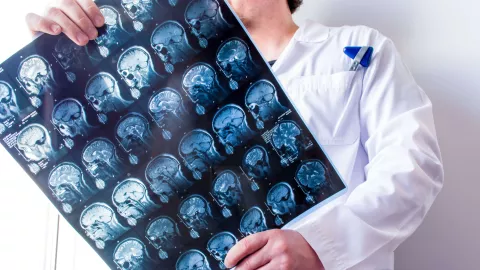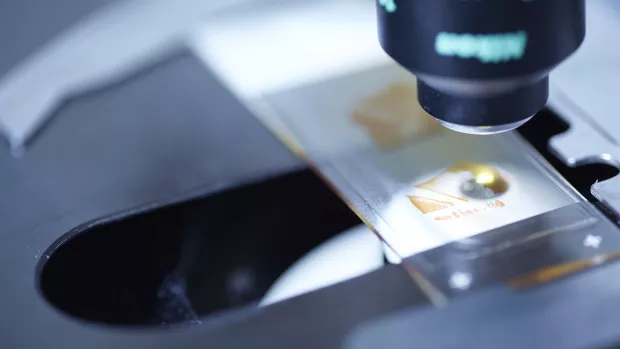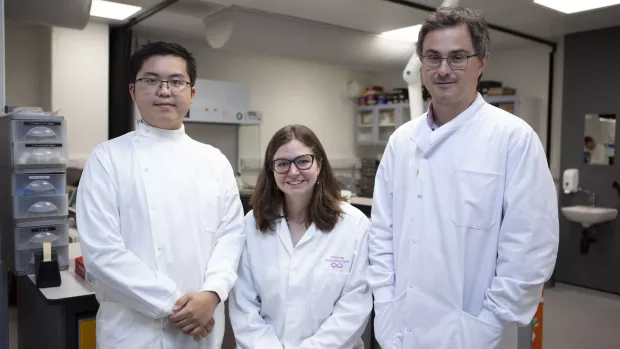
ATX-MS-1467
ATX-MS-1467 is a therapy being developed by Apitope Technology. A small phase 2 clinical trial has suggested it can reduce lesions in relapsing MS. A larger phase 2 trial is needed to confirm this but hasn't started yet.
- Current phase of trial:
- Phase 2
- Type of MS:
- Relapsing MS
About ATX-MS-1467
How does ATX-MS-1467 work?
In MS, the body’s immune system doesn't recognise the protective myelin surrounding its nerves. As a result, it attacks and damages the myelin by mistake. ATX-MS-1467 aims to reduce this attack by ‘switching off’ (or desensitising) the immune response to myelin.
ATX-MS-1467 may be able to do this as it contains some of the components of myelin the immune system targets. By injecting and gradually increasing the dose of these components, the immune system ‘gets used to’ the components and stops attacking myelin.
How is ATX-MS-1467 taken?
ATX-MS-1467 is injected under the skin once every two weeks.
Latest ATX-MS-1467 research
Phase 1 trial
This phase 1 study involved 43 people with relapsing MS. Each received increasing doses of ATX-MS-1467 for a period of 8 weeks. They then maintained the highest dose for 8 weeks.
Researchers reported that ATX-MS-1467 significantly reduced the number of active lesions on MRI scans when injected under the skin. However, 32 weeks after stopping treatment, the number of lesions on MRI had increased to a similar amount recorded before the study.
Phase 2 trial
This was a small study involving 37 people with relapsing MS. All who took part were given increasing doses of ATX-MS-1467 for four weeks, and then given the highest dose for 16 weeks.
Results published in 2018 showed significantly reduced new and active lesions on MRI scans for the duration of the study, including 16 weeks after stopping treatment.
A larger phase 2 trial is needed to further investigate the best treatment protocol for ATX-MS-1467.
What are the side effects of ATX-MS-1467?
ATX-MS-1467 has been reported to be safe and well tolerated in the small phase 1 and 2 studies. Mild skin reactions at the injection site occurred in some people during the trials.
How does ATX-MS-1467 compare with current therapies?
ATX-MS-1467 hasn’t yet been directly compared with other MS therapies.
When is ATX-MS-1467 likely to become available?
ATX-MS-1467 will need larger phase 2 trials which have not yet started. Provided the results of larger phase 2 trials are positive, ATX-MS-1467 will be investigated further with phase 3 trials. This process is likely to take several years. We'll keep you updated on the progress of ATX-MS-1467.
Positive trial results can only make a real difference to people with MS once a regulator like the European Medicines Agency concludes there's sufficient evidence the drug is safe and effective.



